Venue Information
AIED 2022 Conference in Durham: Venue Information

Welcome to England, wrapped in history and full of lovely little corners. On this page you can find out a bit more about the corner of the world you will be visiting.
For those of you that want to just get to the point, here is the need-to-know information:
- in brief: the main venue is the Teaching and Learning Centre (for keynotes, papers, posters, etc.); other venues of interest are the John Snow College (for accommodations registered via the registration website) and Hatfield College (for your Banquet). The Computer Science Department and School of Education at Durham University are your local organisers. Read on to find more information about all these places and a bit of their history and current status below.
The University of Durham was founded in 1832 by Bishop Van Mildert and the Dean and Chapter of the Cathedral and is England’s third oldest university after Oxford and Cambridge. Durham University is distinctive – a Collegiate University with ancient traditions and modern values. Durham is a world top 100 university (as per QS World University rankings 2022). In the 2022 QS World University Subject Rankings Durham University achieved its best results to date with 12 subjects in the top 50 and a total of 19 subjects in the top 100, ranked in the world top 41 for the subjects. Bill Bryson, famous international author and former Chancellor of Durham University said “Durham, I have come to realise, has a capacity to astound out of all proportion to its size. I don’t know any place that manages to be more intimate and infinite at once.”. In national league tables, Durham, a member of the prestigious Russell group, is consistently recognised as one of the top universities in the UK. The University is ranked sixth in the Times and Sunday Times Good University Guide 2022, fifth in the Guardian University Guide 2022 and sixth in The Complete University Guide 2022. Durham University is distinctive – a residential collegiate university with long traditions and modern values. It seeks the highest distinction in research and scholarship and is committed to excellence in all aspects of education and transmission of knowledge. Its research and scholarship affect every continent. It is proud to be an international scholarly community which reflects the ambitions of cultures from around the world. It promotes individual participation, providing a rounded education in which students, staff and alumni gain both the academic and the personal skills required to flourish.

The Computer Science Department at the University of Durham is the university’s newest department, ranked in the top 9 in the UK by the Complete University Guide 2022. The department has embarked on a fast-track ambitious program planning to continue to grow their industry leading research, exciting student opportunities and staff numbers. The department is now set up in a brand-new purpose-built building along with the department of Mathematical Sciences. Networking is a key to their success, and they pride themselves on maintaining close connections with their students and alumni, potential employers of their students, their research partners across all research disciplines (locally, nationally and internationally) plus their partners in industry and government departments. The Department boasts an External Advisory Board, which includes distinguished Computer Scientists from leading industries, universities, and charities. Several members are also Durham University Alumni who have gone on to be outstanding figures in their respective fields. Durham Computer Science is a small to medium-sized department that conducts focused research in a number of key collaborative areas and with a strong record of successful technology transfer. CUDA® is a parallel computing platform and programming model invented by NVIDIA. At Durham Computer Science several outstanding academics are involved in this research, as well as the Tesla K40 GPU Accelerators available for use. In partnership with Durham University Business and Innovation Services, a range of avenues for collaborating with industry (from SMEs to multinationals), business engagement and research commercialisation activities are available within Computer Science. The department actively works with industry (e.g. Jaguar Landrover, Renault, IBM, P&G) and government departments (e.g. MoD, Home Office, Department of Transport) In the last UK Research Excellence Framework (REF), we are proud to say that Computer Science has shown a significant increase in quality in all areas of research since the last research assessment exercise, moving 6 places up the ranking to the 20th position for REF 2021. 97% of our research outputs are world-leading or internationally excellent; 67% of our impact case studies are world-leading with the rest internationally excellent; and 100% of our environment world-leading or internationally excellent.

The Faculty of Education at the University of Durham, highly ranked in the UK by the 2021 Complete University Guide and ranked 2nd in the UK for Research Impact is one of the leading schools of Education in the UK. It also rates highly in the world rankings and in the top 100 in the QS World University Rankings by Subject 2022. Together with their OFSTED outstanding rated Initial Teacher Education provision they are a major contributor to education. The faculty is a vibrant community of scholars, with members across a range of career levels, many of whom are internationally acclaimed researchers pursuing innovative and critical research agendas, and future leaders establishing such profiles. Their passion for research is demonstrated by their success in research income, quality outputs, significant impact, and partner engagement, leading to a stimulating research environment. The diverse expertise of the members of academic, research and teaching staff in the School of Education is one of the key contributions to their success. Along with their central interest in Education, they demonstrate expertise in other disciplines including philosophy, sociology, psychology, politics, and anthropology as well as educational domain-specific expertise in areas including art and cultural history, intercultural education, mathematics, science, English, special educational needs, and early years education. In the latest UK REF 2021, the faculty of education ranked 2nd for outstanding research in Education, 1st for equal for impact and 1st for Outputs. This consists of the overall assessment of outputs, environment, and impact.

The AIHS Research Group is supporting the Intelligence in Education Week at Durham – AIHS and the ATI@Durham Network hosting the Alan Turing AIED/EDM Networking Event on the 27th of July. AIHS (pronounced ‘ace’) is the Artificial Intelligence and Human Systems Group, founded by Professor Alexandra I. Cristea, headed by Professor Effie Lai-Chong Law.
Research themes of AIHS are as follows: Artificial Intelligence, Bias in AI, Software Engineering, Explainable AI, Data Analytics, Natural Language Processing, Digital Humanities, Human-centered Computing, Data Science, ML, Deep Learning, Personalization, Applications (business, education, industry, online e-*, etc.) AIHS combines themes of high interest in the world today with real-life applications. AIHS already boasts connections to the industry and welcomes other companies looking for research solutions to their problems.
AIHS includes specific niche areas to Durham – such as the connection to Digital Humanities – Durham University. It is bringing together Computer Science and Human Aspects and Systems. AIHS welcomes cross-disciplinary collaboration, within Durham and outside, on the international scene. AIHS collaborates with the School of Education, School of Business, Theology Department – to name but a few. AIHS additionally has connections with the N8 Research Partnership and N8 CIR groups, the Matariki International Network.
AIHS is a friendly and dedicated group, including hands-on labs – the User-centric, User2User-interactive Data Analytics and Science lab (SCENE), the Human-AI Interaction Lab (HaiiLab), the Usability lab, as well as collaboration with others labs (Visualisation, Perception, Robotics). AIHS invites talks from excellent researchers around the world and welcomes international audiences to these talks. AIHS also hosts smaller-scale, more intimate reading groups.

The Teaching and Learning Centre (TLC) opened in September 2019. It provides space for independent and group study, as well as lectures and teaching activity. It is the main venue of the conference. Our services: Libraries and site information – Guides at Durham University
The new Teaching and Learning Centre hosts a wide range of learning environments and technologies. There are lecture theatres, teaching rooms, an education laboratory where new teaching and training methods are being developed, student learning zones and catering facilities.
The Centre can host major academic conferences to support the wider economic impact the University makes to Durham City, County and Northeast England.
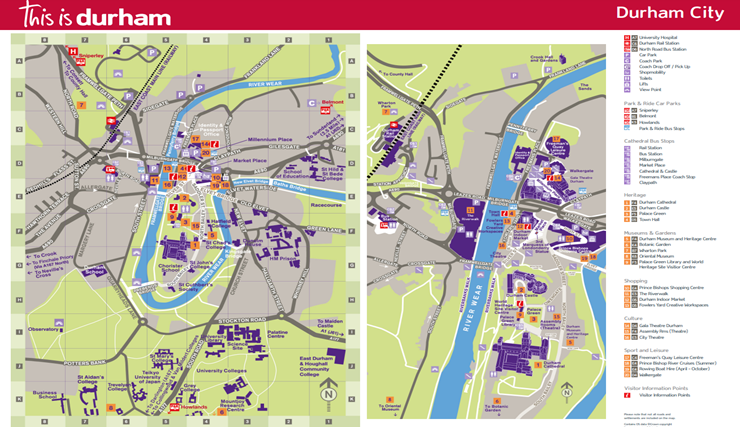
Hatfield College is located at number 20 on the below map
John Snow College is located near number 2 on the below map
Durham Castle is located at number 23 on the below map
Mathematical and Computer Science is located at number 15 on the below map

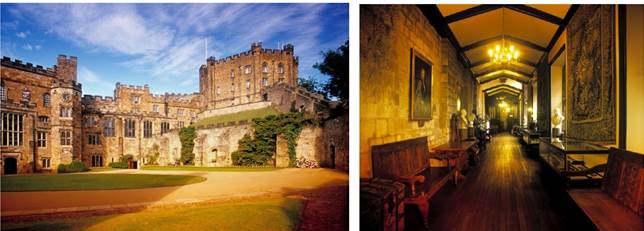
Durham Castle
Durham Castle was handed to the University in 1836 and became University College in 1837, the oldest of the Durham Colleges.
It is part of the Durham World Heritage Site and a Grade 1 listed building. The Castle was previously the residence of the Bishops of Durham and as such played a significant role in the history of the UK.
The present Castle began in 1072 as a simple defensive mound commissioned by William the Conqueror. Over the centuries the Castle has been extended with the Great Hall being added in 1284. The Great Hall is now a popular venue for conference dinners and private dining events.
University College offers 50 en-suite bedrooms plus during summer vacation are able to offer an additional 25 en-suite bedrooms and over 100 standard bedrooms.
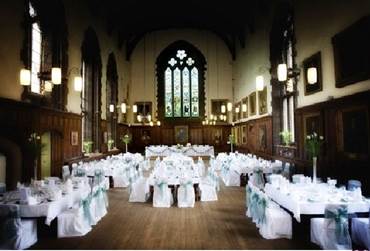
University College, The Castle, Palace Green, Durham DH1 3RW
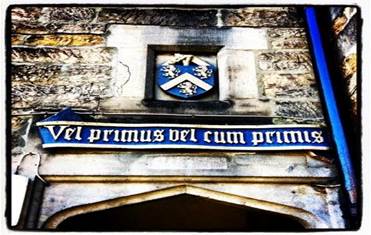
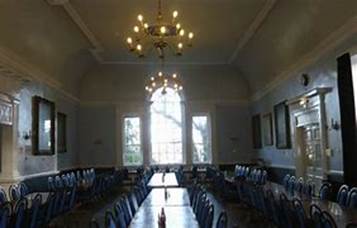
Hatfield College

History
Founded in 1846, Hatfield College is the second oldest College in Durham University. It is located between the World Heritage site of the Norman Cathedral and the banks of the River Wear, on one of the oldest streets in Durham. Hatfield has a very interesting history, and it continues to grow and change, building on its heritage and traditions to meet the challenges of the 21st century.
Crest & Motto
Images of the College crest have varied.
Original Crest
The original 1846 crest of Hatfield Hall (as it was called until 1919) consisted of the basic shield of Bishop Hatfield surrounded by a design converting the shield into a circular design and encircled by the Motto – Vel Primus Vel cum Primis. (The motto can be translated as the first or one of the first).
Second Crest
In 1954 it was pointed out that the use of unregistered Arms was illegal, and the use of Bishop Hatfield’s Shield was inappropriate. The then Master said “Rightly or wrongly it has been used by Hatfield for more than a century. We ought to have no difficulty in obtaining the Heralds’ permission to retain the shield which it has been flaunting de facto for such a long period.” The shield was then described as per chevron argent and azure three lions rampant counter coloured. The College of Arms approved changes and the full College Crest from this point had a crown and plumes above the shield which was differentiated by an ermine border and a scrolled motto beneath. Though this looked very
official, it was not easy to reproduce and not in keeping with the desire for cleaner lines and a more modern look.
Third Crest
A former student Rodney Lucas drew the third crest which became generally used for stationary etc. This proved to be very popular and has served us well for the last two decades.
Fourth Crest
In 2005 the University undertook a re-branding exercise to create a “house-style” for all its communications and to project a more modern image. This has resulted in the 4th version of the College crest which includes all the key features of the past whilst presenting a more modern face to the outside world and proclaiming its fitness to meet the challenges of the 21st century.
College Grace
Blessed God, who feeds us from our youth, and provided food for all flesh, fill our hearts with joy and gladness, that we, having enough to satisfy us, may abound in every good work, through Jesus Christ our Lord, to whom with you and the Holy Spirit, be all honour and praise and power for all ages. Amen.
The grace was widely used in the fourth century and is based on earlier Hebrew prayers. It was translated from the Greek and adopted by Oriel College, Oxford. Presumably influenced by the Reverend Dr Henry Jenkyns, who was a Fellow of Oriel, Hatfield adopted this grace practically verbatim.
Since 1846 the grace has been read at all Formal meals in college. Until 60 years ago the grace was read 6 times a week. Since then, the frequency of Formal meals has gradually decreased to about once a week. It is popular at Hatfield Association Dinners where an attempt to read the grace in English was not popular.
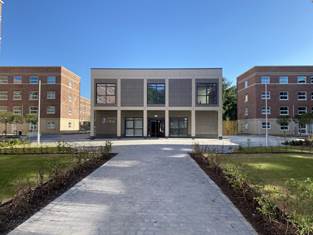
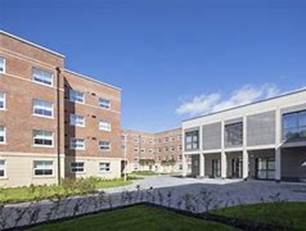
John Snow College
John Snow College is one of 17 constituent colleges of the University of Durham in England. The College takes its name from the nineteenth-century Yorkshire physician John Snow. It was founded in 2001 on the University’s Queen’s Campus in Stockton-on-Tees, before moving to Durham in 2018. The College is now located on the Mount Oswald site, which opened in 2020.
John Snow College is located at Mount Oswald, Durham City as one of the Hill Colleges. This puts us just a short walk from many of the academic departments, in particular The Business School, the University library, the new Learning and Teaching Centre; and the Botanic Gardens are also nearby.
John Snow holds termly formal dinners, in which members of college attend in their relevant Academic dress of Durham University. A set of rules governing behaviour at formals is outlined by the college and disciplined by the JCR Chairman. Two college Balls are held per annum, one in the Michaelmas Term and a further Graduation Ball in the Easter Term, with a large portion of the college in attendance.
The annual Snow Day is a celebration of college life. The event is held within college accommodation and features entertainment, music and food. The day begins with a water fight in the spirit of Snow’s medical research into the causes of the Broad Street cholera outbreak, which was ultimately traced to the water supply. A water fight occurred on the first Snow Day on 27 May 2002. The water fight commences early in the morning.
John Snow College is the only college in Durham to have the position of ‘College Bugler’. Each year the college bugler processes the new intake of students through the city of Durham and announces their arrival at the Cathedral, ready for Matriculation. The bugler also attends all formal events and announces the high table at the beginning of each formal.
It is tradition for all new members of the college to be matriculated by walking up the main path from the JCR building towards the gates, where they are led by a student dressed as John Snow, then walking under a John Snow banner which formally welcomes them into the college.
